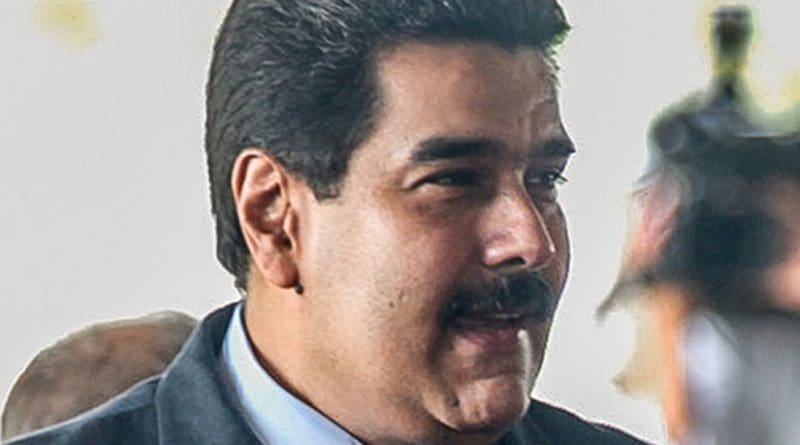Colombia-Venezuela: Political And Humanitarian Crisis Due To Border Closure
More than 1,000 Colombian adults and children were expelled from Venezuela after President Nicolas Maduro issued a state of emergency on Aug. 21 and suspended constitutional rights by an extendable 60 days in six municipalities that border Colombia. The move came after three Venezuelan military officers were injured in a clash with smugglers two days before.
In a message to the country, Maduro announced a state of emergency in the border municipalities of Urdaneta, Bolívar, Ureña, Junín, Capacho Libertad and Capacho Independencia “as part of the measures to restore order, peace, tranquility, justice and a truly humane border.”
Maduro’s decision is carried out amidst Venezuela’s fight against armed groups and smugglers. According to press reports, Colombian guerrillas and paramilitaries are often present in the area. Moreover, fuel and regulated and subsidized goods from Venezuela are smuggled to Colombia and sold at several times their value.
Although the reaction of Colombian President Juan Manuel Santos has been to continue dialogues, the truth is that Maduro’s measure has caused a political crisis between the two countries.
Santos said that the closure of the border is not a solution to the security problems in the area and that both governments must work closely.
“If it’s for security, the response should not be to close the border,” said the Colombian president. “If we cooperate, the only losers are the criminals, but if the border is closed and there is no coordination, the only winners are the criminals. [The response] should be, rather, to collaborate more effectively with the Colombian authorities.”
The summary deportation of about 1,200 Colombians, including 240 children, has caused a “humanitarian crisis,” Santos said. Another 1,000 fled their homes in Venezuela due to threats of expulsion.
Amnesty International (AI) declared in a statement on Aug. 26 its concern regarding “mistreatment during detention, forced evictions and demolition of houses where Colombian nationals lived or where they were believed to have lived without any respect for rights.” AI further noted that “family groups have been separated and have resulted in some cases of children abandoned in Venezuela after their parents’ deportation to Colombia.”
AI noted that Venezuela “has a duty to maintain security and public order, including border areas, and in some extraordinary and unforeseen circumstances provided by law, it may declare a state of emergency for a limited period. However, these actions may not result in human rights violations.”
“The expulsion or deportation procedures must follow all the safeguards provided in the national legal instruments and comply with international human rights standards. For this the Venezuelan state must ensure that the cases of all persons whose expulsion or deportation is under consideration are individually examined in a fair and transparent procedure that allows challenging the expulsion and review of cases,” stated AI.
Hoarding and smuggling
Meanwhile in Venezuela, Aug. 12 marked the first year of the implementation of the National Plan to Combat Smuggling, aimed to prevent hoarding and smuggling of food and fuel, which has led to the arrest of around 6,000 people, destruction of border passageways, and the confiscation of 19,000 tons of products.
Venezuelan authorities accuse Colombian immigrants of aggravating the shortage crisis in Venezuela by hoarding and smuggling regulated and subsidized commodities and selling them across the border at five or six times their price . The Fair Prices Act sets prison terms of three to five years for the resale of these products.
About 170,000 people a day cross the 2,219 km-long Colombian-Venezuelan border.
According to Maduro, more than 5 million Colombians live in Venezuela, people who “are fleeing violence, war and looking for social protection in Venezuela through education, health and work.”
Maduro has stated that 121,834 Colombians have entered Venezuela this year. However, Colombia Immigration data show that between January and August, about 315,000 Colombians traveled to Venezuela, of which 307,000 have returned. It is possible, state the Colombian authorities, that some of the 8,000 who did not return have traveled to other countries.
Likewise, Colombia Immigration data indicate that around 183,000 Venezuelans entered Colombia, of which 174,000 returned to their country. A study by the Central University of Venezuela estimated that 1.6 million Venezuelans have left their country since 1999 when former President Hugo Chavez (1999-2013) came to power.
In a statement, the Colombian Foreign Ministry has asked Venezuela to “respect the integrity and human rights of Colombian citizens who are the subject of arrests, deportations and other preemptive actions.”
“We demand that, before applying deportation measures, the family situation be analyzed to ensure that parents and children are not separated,” the statement said.
Maduro’s response was that the border will not reopen until “at least a minimum sense of coexistence and respect for the law is restored.”

